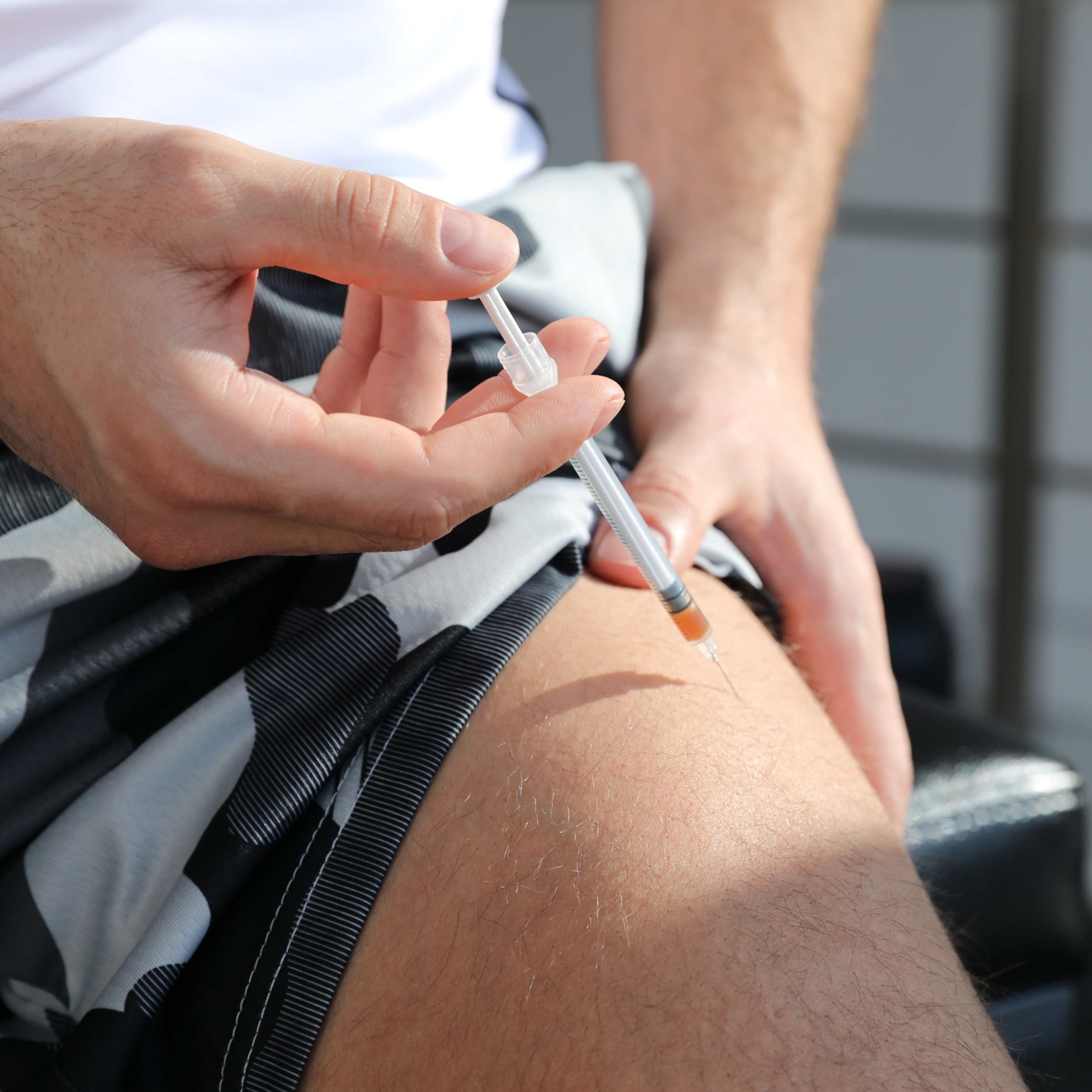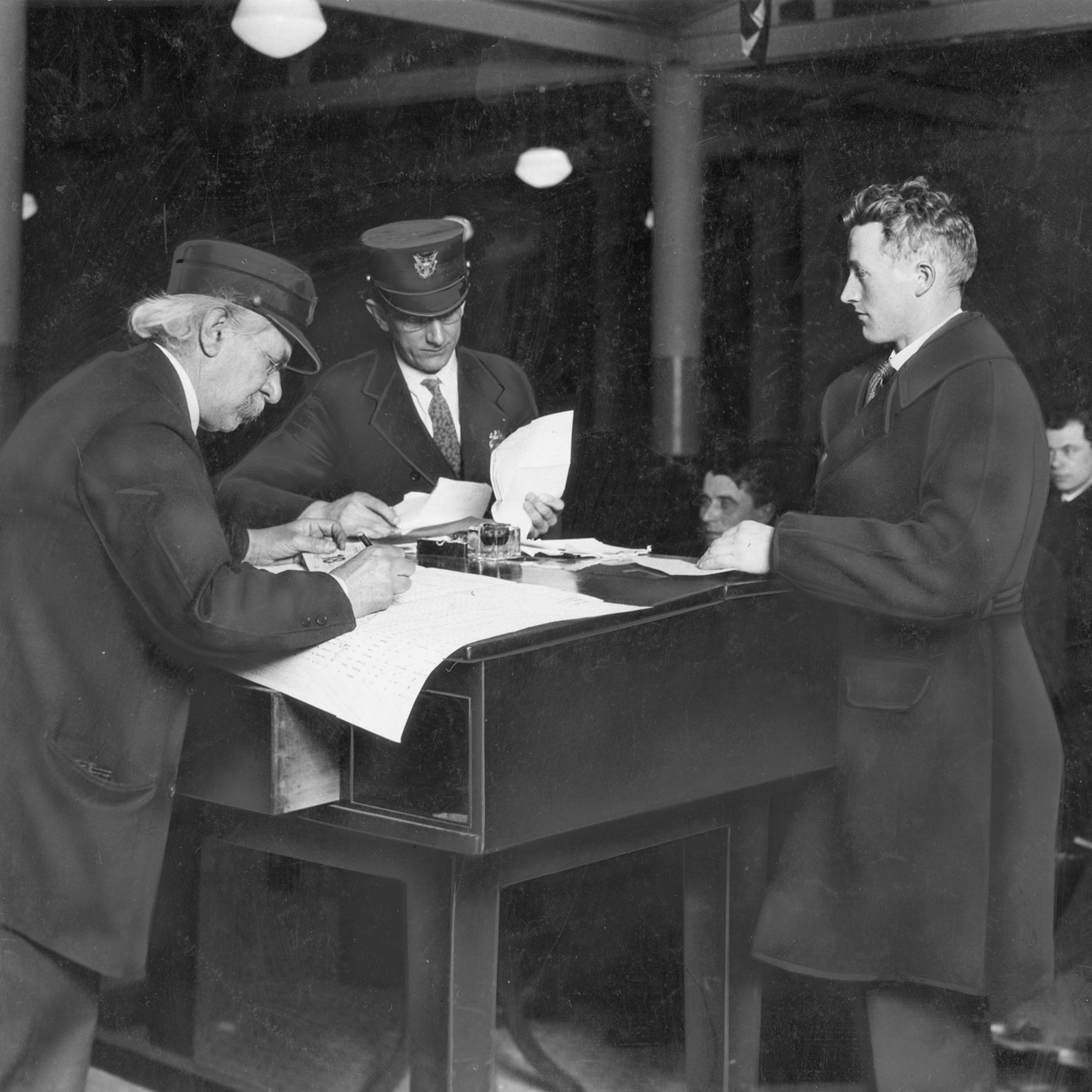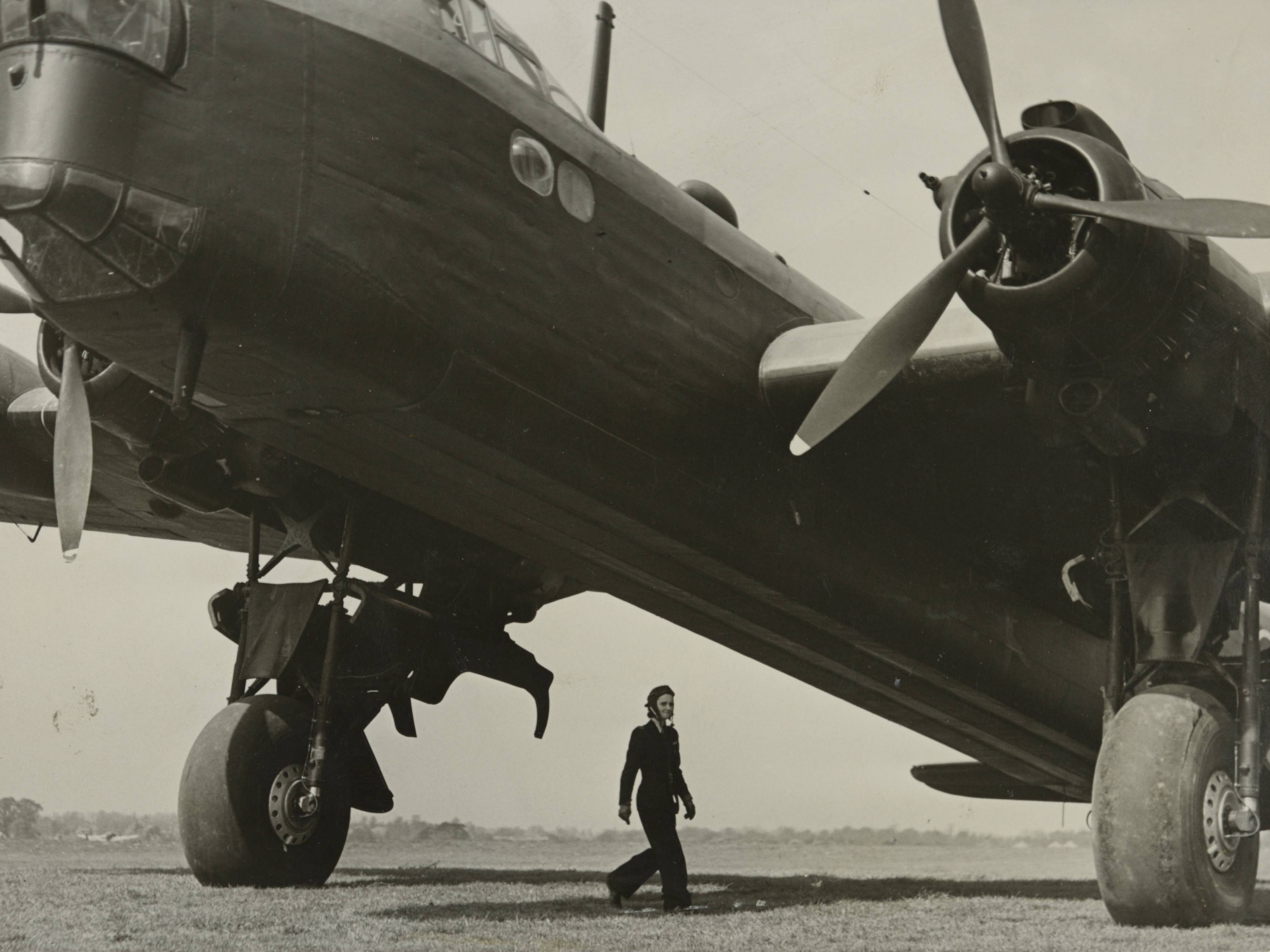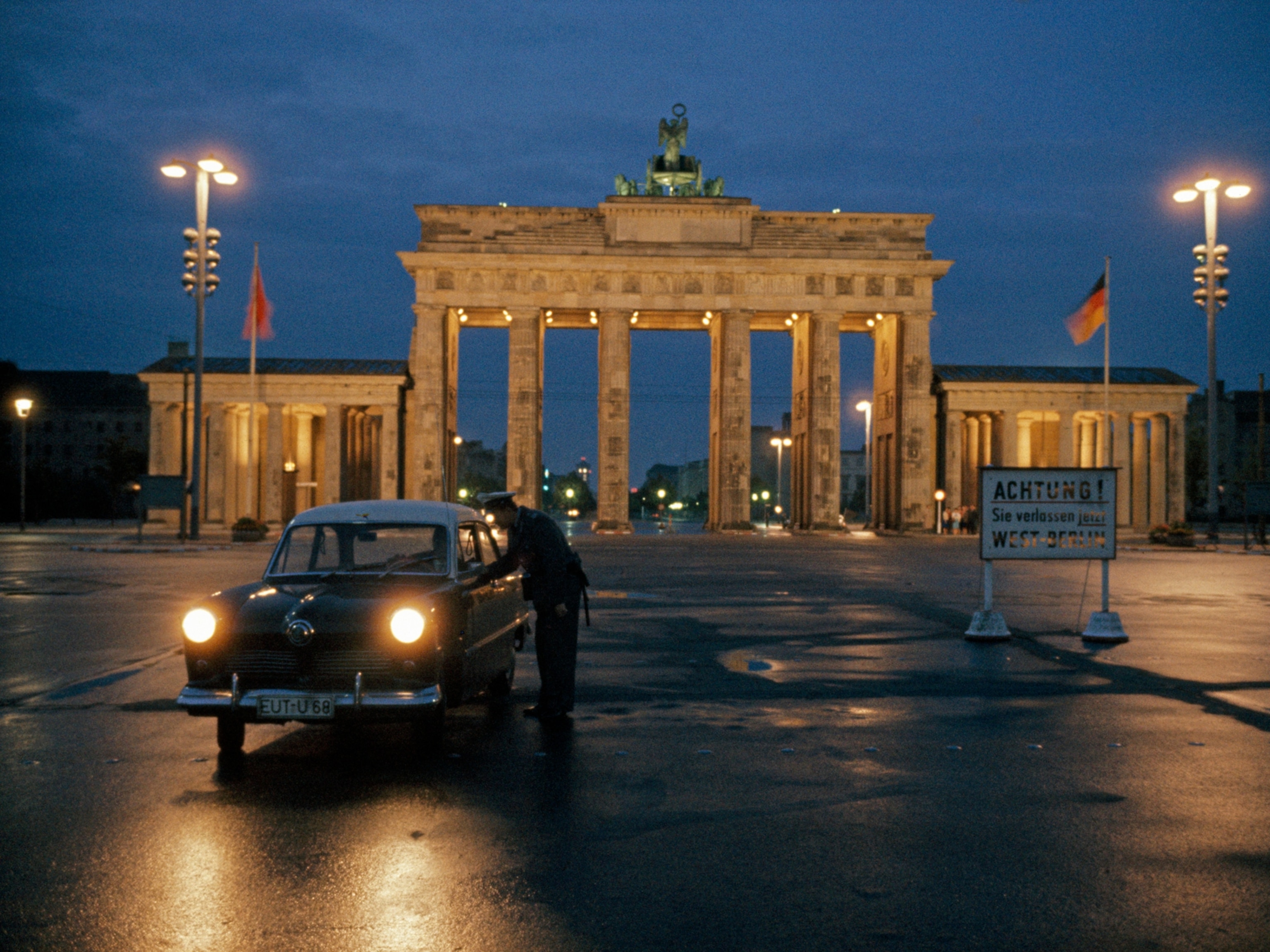Sister Secret Agents in World War II Fought Alongside Men
British women practiced the black arts of sabotage and silent killing.
The U.S. Army lifted its ban on women in combat roles only last year. But more than 70 years ago, a group of intrepid women was recruited to fight alongside men as agents by a secret British organization called the Special Operations Executive (SOE).
In all, 3,200 women took up arms, learning the black arts of silent killing and sabotage. Many were captured and tortured. Many ended up dying in concentration camps. Almost none yielded up her secrets. Very few are still alive today.
Talking from her home in England, Susan Ottway, author of A Cool and Lonely Courage: The Untold Story of Sister Spies in Occupied France, describes how sisters Jacqueline and Eileen Nearne were recruited and trained; what the words farmer, wizard, and bricklayer have in common; and why she admires these modern-day Amazons.
Where did the phrase "a cool and lonely courage" originate? And how does it capture the spirit of these female SOE agents?
It is a phrase Sir Selwyn Jepson used. He was a famous writer in his day and used to interview prospective members of the SOE. He said that he thought women had a particularly cool and lonely courage. And I think he was right, especially in the sort of work that the two sisters did, because they were really on their own. As a wireless operator, Eileen had to remain in the shadows to make sure no one knew what she was doing.
Full disclosure, my father was in the SOE. But it will not be a familiar acronym to most of our readers. The SOE was housed on the same street that Sherlock Holmes lived, Baker Street. Take us inside this secret, wartime British organization.
There were different country sections. The girls were in the French section, which was looked after by Colonel Maurice Buckmaster. Apparently, it was so secret that his wife didn't know where he worked. He used to take his dog into the office sometimes. And one day his wife took the dog out for a walk and discovered where he worked because as soon as the dog got to the entrance, it started pulling on the lead like mad to be taken into the building.
The SEO was set up by Churchill in 1942 as a secret organization that would drop people into occupied countries and create havoc. Churchill said it was "to set Europe ablaze."
Your two main characters are the sisters Jacqueline and Eileen "Didi" Nearne. Introduce us.
According to Didi, she was very naughty as a child. I think, because she was the youngest, she was probably spoiled by the others. There were two brothers. The eldest child was Francis. Then came Jacqueline, then the younger son, and then Didi.
When the two younger children were under school age, the family decided to move to France, where their mother's parents lived. Francis, the eldest, was a very shy boy who had problems that stayed with him for the rest of his life. Jacqueline had done some schooling in England and adapted very well to France. In that respect, the girls were better off than the boys.
But even though the mother was French-born and not a foreigner, they regarded her as one because she was married to a British man. The Germans moved them from their house in Nice, up into the mountains near the Italian border, so they could keep an eye on them. There was very little work, and there was always the threat of being sent on as forced labor to Germany.
The younger of the two boys decided to go back to England and join the air force. The girls were just kicking their heels, so they decided to go to England as well. They got British passports from the consulate and set off for Marseilles. Of course, the Germans wanted to keep all foreigners away from the ports, so they were stopped and sent back home.
They were then told to go across the Spanish border into Portugal and contact the British Embassy to see if they could get them passage on a ship headed for Britain. After three weeks, they found passage on a freighter bound for Scotland.
How were they recruited into the SOE?
Initially the girls found it difficult to get any sort of a job. As they both spoke French perfectly, they applied to join the SOE. At their interviews they were told not to tell anyone where they'd been or what they were doing.
Most of the women were enrolled in the First Aid Nursing Yeomanry, which is now the Princess Royal's Volunteer Corps. The Fannies, as they were called rather unfortunately, used to drive trucks and cars for military people or man mobile canteens. This [saying they were Fannies] gave the girls a good excuse for being away from family and friends, because the training was top secret.
It was unprecedented for women at that time to bear arms and operate behind enemy lines. Was there a gender bias in terms of recruitment and training? Or were women treated equally?
Initially women [in the SEO], of whom Jacqueline was one of the first, were treated as if the Germans, if they caught them, would be gentlemanly and treat them like sweet little ladies. So they didn't do all of the training that the men did.
But it was soon realized that the Germans couldn't care less whether you were male or female. The women were then given the same training as the men, which included the paramilitary stuff up in Scotland. They learned how to handle firearms and do silent killing, using a special dagger called a Fairburn-Sykes. They also did parachute training.
Every SOE unit in France had an often quite funny code name, didn't it? Jacqueline joined the Stationer Circuit. Why the name? And what was her role?
[Laughs] Yes. There was Farmer, Wizard, Bricklayer, Jockey. I'm not sure how they were chosen. They were allocated. The agents were also given code names. For some reason, Jacqueline's code name was Jacqueline. The circuit leader was a chap called Maurice Southgate, who had been born and lived in France. He was a furniture designer and manufacturer. He was older than Jacqueline. He initially tried to get into the air force to train as a pilot, but they said he was too old. She was his courier. She would go all over the country where the circuit was active, passing messages and taking messages back to Southgate. She sometimes helped with sabotage, as well, blowing up pylons, railway lines, and factories.
Didi actually failed the recruitment tests, didn't she? Her file noted she was "not the same stamp as her sister" and "apt to frivolity." Did she have the right stuff to be a secret agent?
Jacqueline was also like that, yet at the end of the war, Maurice Buckmaster, the French section leader, said she was one of the best agents he'd ever had. I think it was partly that some of the women didn't really know what they were letting themselves in for. They were being trained by military men, and they probably made a few jokes to get themselves through.
Of course, that was frowned upon. But if Buckmaster decided a person was right, he would overrule the instructors. He liked Jaqueline because she was very pretty. He had a thing about bone structure. He wasn't so sure about Didi. But at that point they were short of people. So he said: Well, she can go anyway.
If captured, SOE agents could face torture by the Gestapo. Tell us about the "treatment of the baignoire" [bathtub] and how Didi managed to fool her captors.
She told me this herself. She said, "They gave me the treatment of the baignoire." It was at Gestapo headquarters on the Rue des Saussaies, in Paris. They stripped her off and dumped her in a bath of water and held her head under. It was like water-boarding. She thought she was going to die. But they pulled her out just in time, coughing and spluttering.
Buckmaster said about Didi that she was a good actress. And as soon as she managed to catch her breath and calm down a bit, she started shouting at them, saying, "This is disgusting! I'm gonna report you to the town hall."
She acted as if she was just a silly girl, really, who didn't realize that she'd done anything wrong or knew the identity of the person she'd been sending messages for. Gradually, she made them believe her, which is why they didn't bump her off immediately.
She did get put into prison, though, and was ultimately sent to Ravensbruck. That was where they trained most of the female guards for all the concentration camps, like Irma Grese, who was arrested at Auschwitz after the war and executed. The guards would beat the prisoners with rubber truncheons and set dogs on them. It was a really nasty place.
Female SOE agents like Didi were the only women who saw the true horror of war. Jacqueline was lucky not to be captured and went on to live a fulfilling life working for the UN in New York. Didi never really recovered, did she?
No. She went to a variety of doctors. But she ended up in a clinic for people with mental disorders. That's where she had electroshock therapy. It worked for a little while. But she never really recovered. She had potential to do things. She wanted to be a beautician, and they tried to get her a place with Helena Rubinstein. But it just didn't work out. She was then promised she could have a job as an air hostess. But, again, she wasn't well enough. In the end she drifted from one bed-sitter to another. For several years, she was living almost out of a suitcase. And throughout that time she kept her SOE past a secret.
What draws you to these women—and made you want to tell their story?
When I was a teenager I saw the famous film about Violette Svabo, Carve Her Name With Pride, on the television. I was just starting to learn French and German at school. And it was just like, "I could do this kind of thing!" You know what young teenagers are like. They talk absolute rubbish most of the time. But she was my childhood heroine. My father was air force. So I knew about the war even though I was born after it. I thought these SOE agents were terrific.
When I was their age, there were things I did that I'd never do now. But I could never have been as outrageously brave as they were. I found it difficult to imagine how they could leave home and the people they loved behind—and know that they might never come back and might have horrible deaths. But they did it anyway. I just find that incredible and fascinating.








